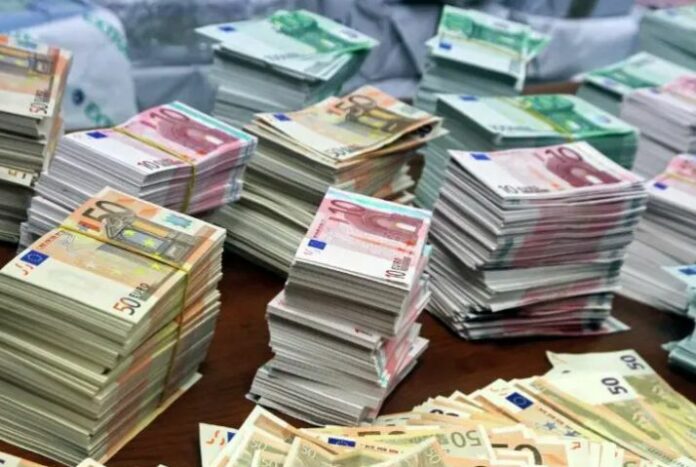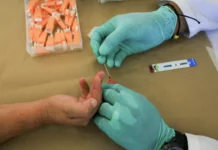LA VALLETTA (ITALPRESS/MNA) – In its latest biannual report to the Italian Parliament, Italy’s anti-mafia unit DIA (Direzione Investigattiva Antimafia) declared that Maltàs favourable tax regime and the easy regulations to set up a new business “allows the various clans to carry out profitable money laundering activities”.
The report which was highlighted by the weekly newspaper Maltatoday mentions specifically the strong ties that the Sicilian mafia and the ‘Ndrangheta of Calabria have in Malta also considered as a base for fugitives.
The DIA report mentions regularly the Santapaola-Ercolano clan for their connections with Malta and is now believed that they use Malta as a base for its fugitives.
“In March 2021, a police operation revealed subjects who, in order to promote the interests of the Santapaola-Ercolano family, had created on the internet a special gaming platform, not authorized to operate in Italy, attributing its ownership to a Maltese company. Some police operations, concluded over the last few years, testify that crime from Puglia, like the other mafia operations, is interested in the illicit gaming market, with proceeds allowing the acquisition of corporate shareholdings, financial assets, vehicles, boats, luxury accessories, and real estate. As happened in the past, the Maltese territory could continue to be exploited by clans mainly linked to the mafia for its fugitives.”
Various operations conducted by the Italian investigators revealed the real connections of mafia clans with Malta, Italy, and other European countries.
In 2021, 80 million in assets were seized from an online sports betting operation in Malta, Germany, Poland, and Italy. During operation ‘Doppio Giocò, the Maltese company involved with the Santapaola-Ercolano clan was alleged to have facilitated the evasion of 32 million in taxes. The Italian finance police said the Maltese companies laundered over 62 million through the acquisition of land and buildings. The crime group used one of their associates, living in Sliema, as a director for various companies and gaming websites, who would smuggle hard cash from Sicily by car from other mafia associates travelling aboard the Virtu Ferries catamaran. The Italian investigators managed to tap a telephone call as they drove around Sliema, St Julian’s, and Valletta: “Wève reached the peak now here… It’s no longer the Malta we once knew,” says one woman identified as Ilda, a resident of Malta, to a mafia associate.
Previous links between the Santapaola-Ercolano clan were confirmed in Operation ‘Dirty Oil’, the 30 million oil smuggling ring that saw the arrests of Maltese nationals Darren Debono and Gordon Debono, and Italian associate Nicola Orazio Romeo described by prosecutors as someone employed “to further the business interests of the Santapaola-Ercolano family”.
Another investigation, Operation ‘Gaming Offlinè, includes Romeo who was acting on behalf of Santapaola-Ercolano clan. He was accused of a conspiracy of money laundering that used Malta as one of the bases for a gaming company.
Barìs Parisi clan was also linked to Malta with complex cases of tax fraud and money laundering, oil smuggling, extortion, drugs trafficking, and gun trafficking. “In Italy, the Parisi clan are well placed within the business, economic and social context, particularly in animal slaughter and meat processing industries through the control of cooperatives and private companies, and in catering.” Italian anti-mafia police believe the Parisi clan has generated at least 170 million in tax fraud using fictitious VAT credits claimed on inexistent financial transactions.
In Catania, the Cappello-Bonaccorsi, and Laudani clans, are said to control the international drug trafficking route from Rosarno, controlled by the ‘Ndrangheta, just outside the Goia Tauro port to Malta. “This transnational organization planned to import cocaine from the Netherlands, Germany, Belgium, and Spain and was able to supply it to the most important local dealerships and Malta. The Rosarno-Catania connection highlights the ties between the Rosarnesi and the Cappello clan of Catania, whose historical origins mean business between the two groups has been going on for several years.”
The Malta connection extends to both the Cappello-Bonaccorsi clan and the Santapoala-Ercolana family, on a large drug trafficking route from Albania to the Netherlands, as well as Calabria and Puglia in southern Italy. “The investigation allowed us to outline the role played by some prominent figures of different mafia families within the Etna region’s criminal scenario… Once again the centrality of the business leads to often rival criminal organisations choosing to coexist on the same territory, renouncing violence and bloody conflicts in favour of business.”
In December 2021, the police in Catania arrested 16 persons in connection to cocaine and cannabis trafficking from Sicily to Malta, with the involvement of Albanians and Maltese. “The narcotics departed from Albania and transited from Puglia and reached Ispica, which hosts an operational base of the organisation, and then passed on from Calabria for resale to Malta, Lombardy, and also on the Sicilian market, specifically the provinces of Syracuse and Ragusa.”
Specifically, the Italian DIA believes much of this trafficking to Malta is coordinated by the Mazzaferro ‘ndrina. “The aforementioned operation reaffirms the highly favourable contiguity between the island of Malta and Sicily for illicit trafficking, as is also apparent from the ‘Alter Egò drug operation of November 2021 which outlined the role of prominent figures of the Santapaola and Cappello families, highlighting the reports, contacts, and dynamics on the trafficking of large quantities of drugs and their supply, for subsequent sale to Maltese collectors”.
-photo agenziafotogramma.it-
(ITALPRESS)
Malta used by Italian mafia clans for business
Vuoi pubblicare i contenuti di Italpress.com sul tuo sito web o vuoi promuovere la tua attività sul nostro sito e su quelli delle testate nostre partner? Contattaci all'indirizzo [email protected]















